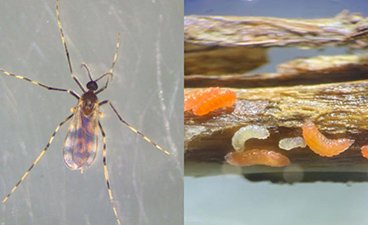The Rapid Agricultural Response Fund (RARF) allows University of Minnesota researchers to respond to urgent issues and challenges facing Minnesota's agricultural and natural resource industries.
The Minnesota legislature first authorized a program and created a fund to enable rapid responses to such issues in 1998. Since the fund’s inception, research has responded to issues like soybean aphid, emerald ash borer, glyphosate resistant weeds, spotted wing drosophila, chronic wasting disease, and a variety of diseases in poultry and livestock production systems.
The MAES oversees the Rapid Agricultural Response Fund, which has enlisted faculty in the College of Food, Agricultural, and Natural Resource Sciences, College of Education and Human Development, and College of Veterinary Medicine, as well as the support of the University of Minnesota Extension Service. RARF projects are awarded every two years.
View a full list of recent and past RARF projects.
If you are a University of Minnesota researcher interested in applying for RARF funds, visit the MAES intranet.
Rapid Agricultural Response Fund News

U of M students sequence genome of newly discovered soybean pest
University of Minnesota students conducted crucial genome sequencing for the newly discovered soybean gall midge — a pest that is threatening the soybean crop, one of the most widely cultivated and consumed throughout the world. This small fly has been found in major soybean-producing states in the Midwest, including Minnesota, Iowa, Nebraska, South Dakota and Missouri.

U of M research guides Minnesota's response to dicamba challenges
In the age of herbicide resistant weeds, the herbicide dicamba is a useful tool to Minnesota soybean farmers. With support from Minnesota’s Rapid Agricultural Response Fund, CFANS Professor Tim Griffis and his team have been conducting research to better measure and understand how dicamba moves across the landscape. Learn how that research has led to the development of best practices and guided state regulations.

UMN researchers develop novel, field-deployable test for Chronic Wasting Disease
With funding from the MAES Rapid Agricultural Response Fund, University of Minnesota researchers at the Minnesota Center for Prion Research (MNPRO) have developed a novel approach to field testing chronic wasting disease (CWD). The team confirmed their findings in southeast Minnesota the week of March 8, 2021, making them the first-ever scientists to successfully deploy a CWD field test. Read more about this research discovery.